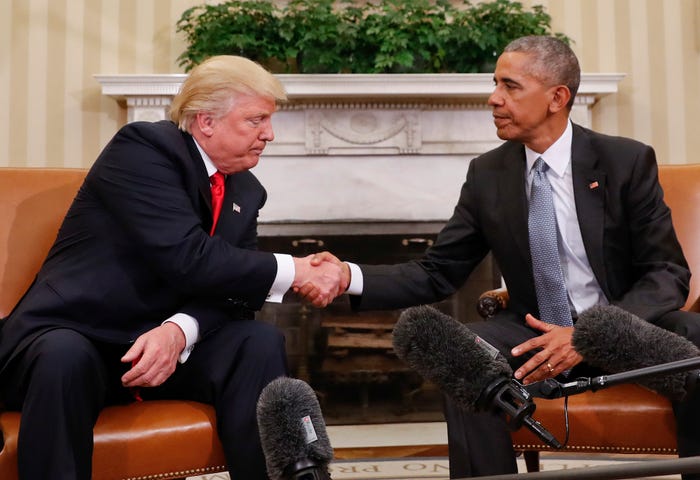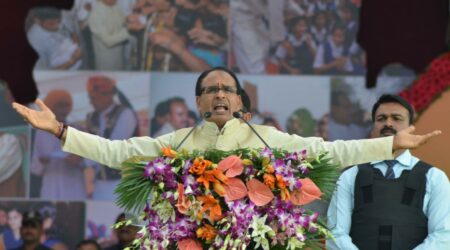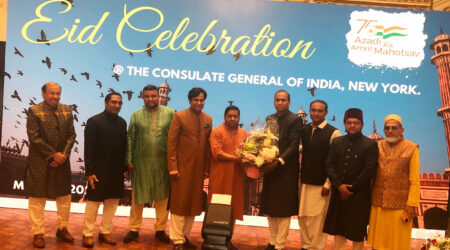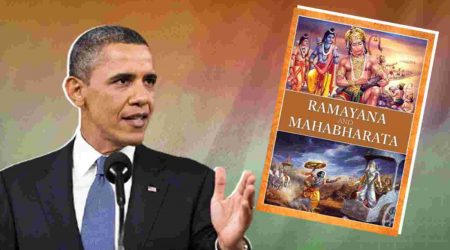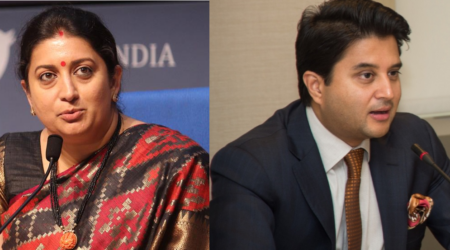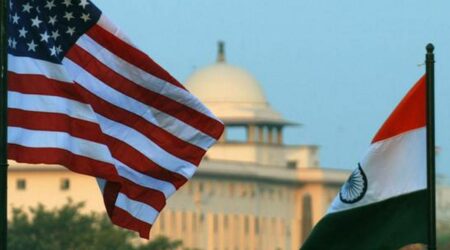By Neera Kuckreja Sohoni
The much awaited 701 page tome, or one could dare to say the not-so-memorable memoir by former Barack Obama, reflects nothing more than his carefully framed grading of his presidency, and equally, the unsurprising obsequious gushing response to it by an adulating media ever ready to hail the charm of ex-President. Here is the lead line from a review of ‘A Promised Land’ (Peter Conrad, The Guardian, November 22): “America’s former commander-in-chief shares his character flaws and fears for the presidency in this poetic, introspective account of his childhood and first term in the White House.” The reviewer goes on to say, “Like the best autobiographers, Barack Obama writes about himself in the hope of discovering who or even what he is. It’s a paradoxical project for a man who is universally known and idolised, but this uncertainty or insecurity is his motivating force and his most endearing quality”.
Even to an erstwhile admirer and a two time voter for Obama, the above summation appears an overkill. The reviewer’s comment about a poetic introspective account is so far from what some other readers would detect in their reading of Obama’s story. He is anything but poetic. He is a cerebral man, whose life was not short of challenges (whose life isn’t?). While those challenges caused him pain and confusion and did and do make him sympathetic, they also make him less than comfortable with who he is, making him overly cautious about how he projects himself. His persona is pleasant but introverted and dry. And the sober responsibility of writing about his presidency reinforced by the analytical rigor and pomposity attributed to a Harvard Law Degree makes his speech and writing professorial, and more guarded than spontaneous. In a rare candid moment, Obama confesses (p.83), “By nature I am a deliberate speaker”, which he claims, “kept his gaffe quotient low”, but raised another problem. “I was just plain wordy.” He could well have added, “And boring”. Obama recalls how the professorial style made him give a “ten-minute explanation of the nuances of a policy.” No wonder at the end of one of his media appearances, his advisor David Axelrod aptly opined that Obama “got A on the question but no votes!”
Brevity is unusual in academia as much as fluency and frankness are rare in politics. The lecturing style combined with the politics of presidential speak dominate the book making his narrative dry and wry. Obama’s mindset and persona are intrinsically defensive, which permits introspection only of the kind that scratches the surface. He is protective of his inner reality, as most men are after they become great. In this book, therefore, he rarely chooses candor over caution, though the underlying resentments, however subtly covered, do come across as seen in his references to Bill and Hillary Clinton, Bill Gates, and some others. The only time he drops his guard is when he refers to President Trump whom he freely disparages, with a relish and venom that traditionally one would least expect of a seemingly pleasant, likeable, and measured Obama, and what he and his fans (mistakenly) believe he is. By keeping the embers underlying his presidency burning – like silent rage – beneath his guarded exterior and careful writing, his narrative becomes stilted and his diagnoses of events suspiciously subjective. The desire to appear to be measured cannot remedy autobiographer Obama’s inevitable obsession to present his actions as accomplishments and others’ actions as failings or disruptions calculated to harm or undermine his presidency. Frankly, one senses more paranoia than pathos or poetry in this voluminous part one of Obama’s memoir of his presidency.
There is something challenging about anyone – least of all a public figure of Obama’s recognition – having the ability and wherewithal firstly to be bumped into an extraordinary job and life, and secondly – once seated on the high pedestal as the Leader of the Free World – to not begin to unshakably believe in the myth of his own mythical greatness. Mythology – whether Greek or Indian – is filled with men whose narrators or whose self-telling of their stories made them seem much larger than what they may have been to start with. The curse of autobiography is the difficulty of the narrator to present himself from the perspective of how he feels about or sees his self, yet balance that with how others see, perceive or ‘feel’ him. That is precisely why biographies are infinitely less taxing to write and more gripping to read. The painstaking collection of facts and steadfast objectivity necessary to build a faithful recounting of what occurred during a presidency is likely better handled by one who looks in from the outside. The inside view presented by the insider himself invariably clouds both the iteration and commemoration of events, even as the autobiographer’s take on events becomes skewed, stilted, and stuffy.
Obama’s middle of the road approach to his presidency as to his life seeks neutrality and modesty that invariably remain illusions, at least in this volume of his presidential story. Much of Obama’s success lies in his meteoric rise to the top American post without underpinnings of a solid and lengthy political (or military) experience traditionally expected and associated with securing that post. Contrast him with Joe Biden who has over 45 years of political life behind him when he gets to be President. In that way, one could dare to suggest that Obama has greater similarity with and therefore less reason to look down upon Donald Trump who similarly shot his way into the White House albeit in his case, with zero political grounding and worse, a much resented and envied tinsel life entirely unlike Obama’s. That Trump is considered an imposter and Obama the genuine prince is the irony of these two Presidents and their presidential tenures.
The aura of a Harvard law degree and the wonder of rising above the challenges of biracial ethnicity catapulted Obama to early fame, which understandably left him in his pre-presidential campaign years feeling somewhat uncomfortable, as though he was an imposter. In a real moment of truth when he realizes he did not do much but was about to be crowned his party’s nominee and later the nation’s president, he surmises what his opponents such as Hillary and Biden would have felt about him. As he says on Page 104, “A man 14 years younger than HRC, who hadn’t had to pay the same dues, didn’t carry the same battle scars, and seemed to be getting every break and every benefit of doubt.”
But reverting to his life story, what gripped the nation in his premier storytelling venture – ‘Dreams From My Father’ (1995) is that part of his life which is neither relevant nor elevating to this autobiographical account of his presidential years. Yet, reviewers tend to harp on the poignancy of his early dreams and wrongly apply that lens to critique both his presidency and his current volume. When you come prepared to love a man and his writing, you are likely to find not just poetry in his writing, but poetic justice in whatever he does and valor in whatever he fails to do. Like the sycophantic media has always done, the reviewers today are happy to serenade Obama for just being him, while covering up his deficiency in sufficiently credible political and leadership experience or the real worth of his ability and reliability as author of his presidency. By contrast, they have spared no pain to deride Trump’s total absence of congressional experience and the suspect accomplishments of his tinsel life. United against Trump as one, they have sought always to make his candidacy laughable, and his presidency at once unworthy and illegitimate. That the scepter of legitimacy fell only on Obama but was denied to or snatched away from Trump reflects more the failure of our aristocratic democracy to pass the baton to a despised and despicable outsider, as it does the arrogance and closed-mindedness of elitist academia and the politico-social class to open their respectable picketed minds to an uncouth maverick. Working together, this Mafiosi muscled the power to patronizingly enthrone one and criminalize the other’s occupation of the White House.
To adulate Obama for his success against all odds is to demean America’s history. Immigrants of all kinds of racial and national origins have made it big whether in politics, business, science, academia or performing arts in this Land of Opportunity. From Hamilton, an orphaned first generation immigrant, to Representative Ilhan Omar, also a first generation refugee immigrant, is an unbroken chain of tales of individual grit to advance and a systemic support to those who wish to advance. Elon Musk (Tesla), Pierre Omidyar (eBay), Jerry Yang (Yahoo), all first generation immigrants respectively from South Africa, France and Taiwan, have broken barriers in space, speed and wealth that have sensed how a fertile receptive and embracing environment can allow genius to bloom. To single out Obama for the incredibility of his achievement is to overstate the case for him.

If Obama manages to win the Nobel Prize for Literature for this memoir, it will be no surprise considering the eagerness with which the Swedish Committee awarded him the Peace Prize, an honor that justly should have been gone instead to American Democracy and the Americans for putting their might behind a minority candidate and breaking the white monopoly over power. This time around, if the same hasty mistake were to be made by the Swedes, no one will be more bewildered than Winston Churchill who was given the Nobel for Literature for his mastery of biographical (not autobiographical!) description as well as for his brilliant oratory.


